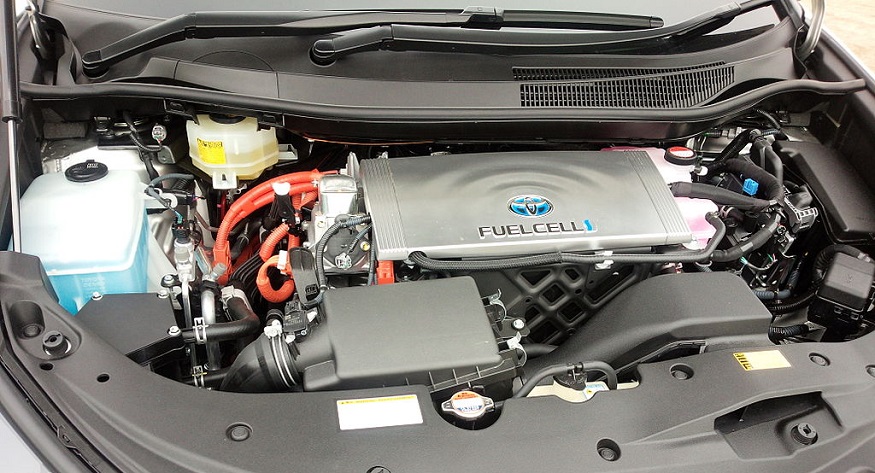
Canadian government seeks to make its hydrogen fuel sector take off
September 30, 2020The country is seeking to become an important player in this form of renewable energy fuel.
Canada is building a strategy to build its hydrogen fuel sector, which the country views as a critical step to combatting climate change.
The country views H2 use as a viable path toward improving air quality while supporting economic growth.
Canada is not alone in its perception of the hydrogen fuel sector. H2 is in the spotlight worldwide as an important renewable energy in a world highly dependent on fossil fuels which produce carbon and other polluting emissions.
The Canadian government has been building a long-term strategy for securing the country’s sector and its position as an important part of the global industry across coming decades. The government has announced that it intends to have a plan ready for public announcement this fall.
Many countries are moving quickly to give support to their hydrogen fuel sector businesses and resources.
Since Canada is already facing fierce competition, it is under a great deal of pressure to carve out its niche and move fast to begin movement in H2.
“Things are happening quickly,” said Seamus O’Regan, Natural Resources Minister. “It looks like trends we saw before the pandemic have accelerated. We want to be ahead of it.”
That said, the hurdles associated with fuel cell use cannot be overlooked, particularly not on this scale. Among the barriers the Canadian government’s plan must overcome include fuel cell technology, economics, transportation requirements, and the vital need to build an infrastructure of refueling stations in order to make H2 use feasible.
Another central challenge has been in the production of green H2. The key is to use renewable electricity – generated through methods such as solar and wind – to power the electrolysis process that splits the oxygen and hydrogen in water.
The Canadian federal government and some of the country’s provincial governments have indicated that they will be committing substantial funding to boosting the hydrogen fuel sector. Quebec and Alberta have already promised funding to build on this renewable energy in their parts of the  country. Alberta has been working directly with the federal government for producing the national strategy.
country. Alberta has been working directly with the federal government for producing the national strategy.



 With over 15 years of reporting hydrogen news, we are your premier source for the latest updates and insights in hydrogen and renewable energy.
With over 15 years of reporting hydrogen news, we are your premier source for the latest updates and insights in hydrogen and renewable energy.
As long as the hydrogen will be generated using renewable energy, and not at the expense of converting the grid to renewable energy, then I am 100% behind this plan for our longer-term future. The key takeaways on this issue are that speed is of the essence, and a 100% renewable energy, zero emissions grid is a national priority as well as a precursor to a hydrogen energy economy.
In the short term, batteries will be a bridge technology for both transportation and energy storage/ grid stabilization until we have the breathing space and the luxury of using hydrogen on a large scale, which is less efficient, but more versatile than battery storage. Hydrogen will need trillions of dollars of investment in infrastructure, and we cannot continue to rely on fossil fuels until that is in place, as we continue to do today. The government really needs to jump on the battery manufacturing bandwagon as well.
Let’s make this happen, and if we have the wherewithal, let’s help others make it happen. Canadians are nothing if not creative! Net zero before 2050. This is just what the world needs to do, and hydrogen will play an increasingly large role as the decades go on. If we move away from fossil fuels quickly enough, human society will get a shot at a hydrogen future, but our window is closing very fast after decades of funding the fossil fuel industry instead of the renewable energy industry, so less talk, more action.
At what cost and who will pay. Not convinced that this will be as cheap as natural gas or hydroelectric based infrastructure. Canadians need to wake up from their stupor that this is the end all of our goals.
Well said, i agree!
As solar and wind are renewable alternatives energy, there is another way to produce power from wood residue with a new technology based on renewable natural gas for power to be in use for electrolyzing the water into H2 & Oxygen.
I can provide info for investors funding of 65 h2 fueling stations across Canada. Best regards, SteveKovacs. President, Hydrogen Fueling Stations USA
Terrestrial Energy, a mostly Canadian company is on the cusp of building its’ first Molten Salt reactor, which will also be the first commercial molten salt unit in the world. This is entirely green technology which can form base load for all electricity generation, including that needed to split water for hydrogen. Both primary and waste heat from the reactors can replace coal, gas and oil for industrial heat processes.
Federal and Provincial governments should be throwing all their weight behind this small company to build out these Small Modular Reactors everywhere across this country to eliminate all fossil fuel plants.
Instead this is happening unseen and unsupported by most Canadians. It’s ridiculous, and I blame primarily our poor media for missing this important piece of history.
I am a Canadian-Hungarian architectural engineer, currently working in Hungary for the last two decades, but planing to return and introduce my new sustainable, safe, healthy and environment friendly housing:
“PV-SOL+VIG+VIP+H2@700bar-FC -electric, self sustaining architecture, including home and transport, year round! It is also none combustible, wind, earth quake, fire, insects resistant, with a VOC’c and if needed, even EMR free interior.
Many parts of its components are recycled materials, such as glass, others are all earth materials, plenty everywhere.
The question, could I have support to build some models in Ontario or in other parts of Canada to demonstrate it, and establish some production for its components, which I would have to first import for the initial model from Germany, China, USA, etc. Can I plan such a venture there and receive any support? Pl. let me know!